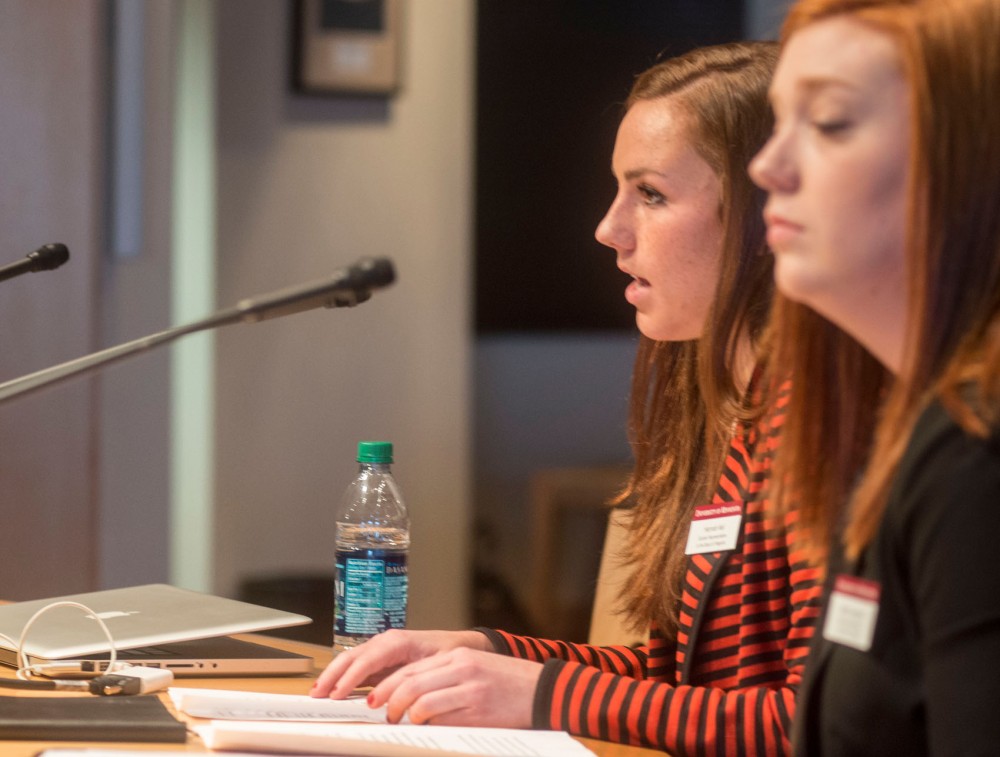University of Minnesota student leaders are concerned the Duluth campus isn’t receiving a fair amount of funding.
With a looming $6 million budget deficit and declining enrollment numbers at the campus, some students are asking for more transparency in how funding decisions are made. At a Board of Regents meeting last week, student representatives to the board expressed concern of system-wide budget transparency in their 2015 report to the regents.
“Students are demanding more and more transparency from the University system and the logic behind fair and equitable funds distribution,” the report read. “We sense that this general lack of transparency is having an adverse effect on campus climate.”
Rep. Jennifer Schultz, DFL-Duluth, who’s also an associate economics professor at UMD, said more state investment in the Duluth campus is necessary to ward off cuts that could impact academic programs. Still, a lack of openness surrounding funding distribution has made it difficult to figure out where cuts can be made.
“It’s been very frustrating, I think, for people on campus to not have much negotiating power,” Schultz said.
The Duluth campus recently reduced its $12 million budget deficit to $6 million, and school officials are currently contemplating where additional funding cuts will be made.
UMD Chancellor Lendley Black held a town hall meeting in February to address budget concerns with the campus community. Decisions regarding where additional cuts will be made won’t be finalized until state lawmakers approve the University’s budget request.
“I think it’s more or less just being sure you get to why decisions are being made and how they’re being made,” said Hannah Keil, chair of the student representatives to the board. “Is there a certain model being followed, or what are the discussions surrounding that?”
Shultz said declining enrollment rates on the campus have put a strain on its resources. Spring enrollment at Duluth this year is down by about 8.5 percent from spring 2012, according to the Office of Institutional Research.
“We’re running extremely lean right now, and there isn’t a lot more room to cut,” said UMD Student Association President Jacob Froelich. “We are
asking for the University system to strongly revise and look at how those funds are being distributed and if it’s fair.”
This year, the University is requesting $127.2 million from the state. Gov. Mark Dayton updated his budget proposal last month to fully fund a tuition freeze for resident undergraduate and graduate students, as well as an additional $30 million for the Medical School. After lawmakers approve the University’s budget request next month, its leadership will decide how to distribute funding to the five campuses.


